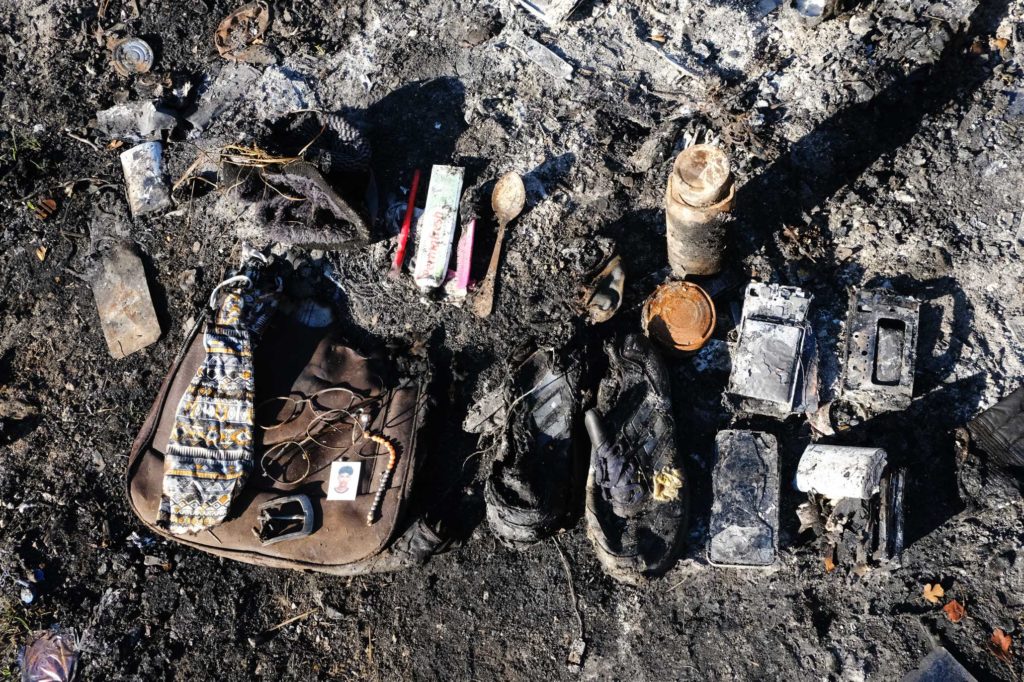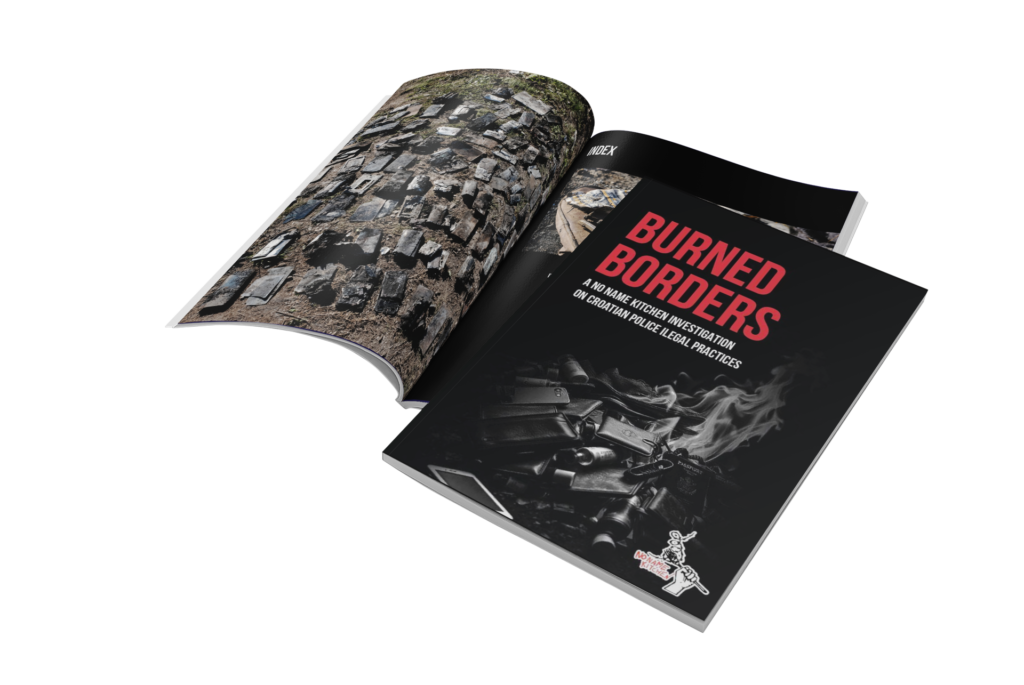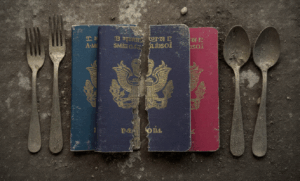The Croatian police’s violent practices at the Bosnian-Croatian border have come under intense scrutiny, in light of the findings from No Name Kitchen’s (NNK) recent report, Burned Borders.

This report reveals the systematic destruction of personal belongings and the psychological trauma inflicted on individuals seeking asylum in the European Union. As an active member of the UAI (United Against Inhumanity) supported campaign “Stop the Inhumanity at Europe’s borders”, NNK’s work highlights the urgent need for policy reforms and concrete measures to address these grave violations of human rights.
In the spring of 2020, as the pandemic sealed borders and restricted oversight of human rights abuses, Croatian authorities ramped up their violent pushback tactics. The situation deteriorated to the point where, in May 2020, testimonies collected by NNK in Poljana area, Bosnia, indicated that a group of migrants had been forcibly returned, their heads marked with orange crosses in a brutal act of humiliation and psychological terror. This horrifying event marked the beginning of a series of pushbacks characterized by extreme brutality, disconnected from any legitimate border enforcement or respect for basic human rights.
NNK’s comprehensive investigation between October 2023 and August 2024 uncovered numerous “burn piles”—secret locations where Croatian border police destroy the personal belongings of those attempting to migrate. The residue of these fires consist of critical personal items such as phones, clothes, documents, and even the treasured belongings of individuals seeking refuge from war and persecution. The sheer volume of melted electronics and burnt personal effects are a glaring reminder of the inhumanity underpinning these border practices.
One of the most poignant accounts recorded by NNK is that of a Syrian teenager whose glasses were deliberately burned by Croatian police, leaving him practically blind in the forest. This testimony exposes the systematic cruelty faced by people with no access to safe routes to migrate. The testimonies collected by NNK paint a chilling picture of violence: men forced into rivers, stripped of their belongings, beaten, and subjected to attacks by police dogs. According to NNK, these acts are part of a broader strategy to strip individuals of their dignity and erase their identities.

The justification for these violent actions is often couched in terms of maintaining order and security, with Croatian and European authorities citing bilateral agreements that circumvent judicial oversight. However, the use of spray paint to mark the heads of detainees, alongside the confiscation and destruction of personal items, is neither defensible nor legal. The report highlights a disturbing blend of humiliation and sadism that cannot be overlooked.
While there is an urgent need to hold both Croatian and European authorities accountable for their actions, the UAI campaign seeks to challenge the violent and illegal practices at Europe’s borders, advocating for humane policies that respect the rights of all individuals, regardless of their migratory status. The objectives of this campaign include raising awareness about the atrocities committed at Europe’s borders, pushing for legislative changes, and ensuring that the voices of those affected are heard.
NNK’s efforts are crucial not only for documenting these abuses but also for initiating meaningful dialogue on reforming border policies. The testimonies collected are not eventual, but a constant trend; they serve as a vital archive of violence that reflects the European Union’s failure to uphold its commitments to human rights. By creating this archive, NNK aims to amplify the voices of people on the move, giving them the platform to share their experiences of violence and humiliation.
The report also emphasizes the role of civil society in advocating for change. The ongoing violence against migrants, exemplified residue of fires that destroyed crucial identity documents and other personal effects as well as the testimonials of survivors, calls for immediate action, urging European authorities to recognize the urgent need for safe and dignified migration routes. The systematic destruction of personal belongings is not just a not just an issue of policy or practice; it represents a fundamental violation of human dignity. The continued existence of such policies further complicates the already fraught relationship between European nations and the individuals seeking refuge within their borders.
In conclusion, the findings from Burned Borders reveal a disturbing truth about the realities faced by those attempting to migrate in search of safety and a better life. The testimonies collected by NNK serve as powerful reminders of the inhumanity inherent in the current border enforcement practices. As NNK continues to work in partnership with the “Stop the Inhumanity at Europe’s borders” campaign, the urgency for policy reform and the protection of human rights has never been more critical. It is time for European authorities to acknowledge these violations and commit to a future where human dignity is prioritized over arbitrary enforcement. The call for safe and legal pathways for migration is not just a necessity; it is a moral imperative that must be addressed in a prompt and responsible manner.
About the author: Ric Fernandez is coordinator of No Name Kitchen and leads border violence related investigations at Europe’s borders.
The opinions expressed in this blog are those of the author and do not necessarily represent the views of United Against Inhumanity (UAI).











